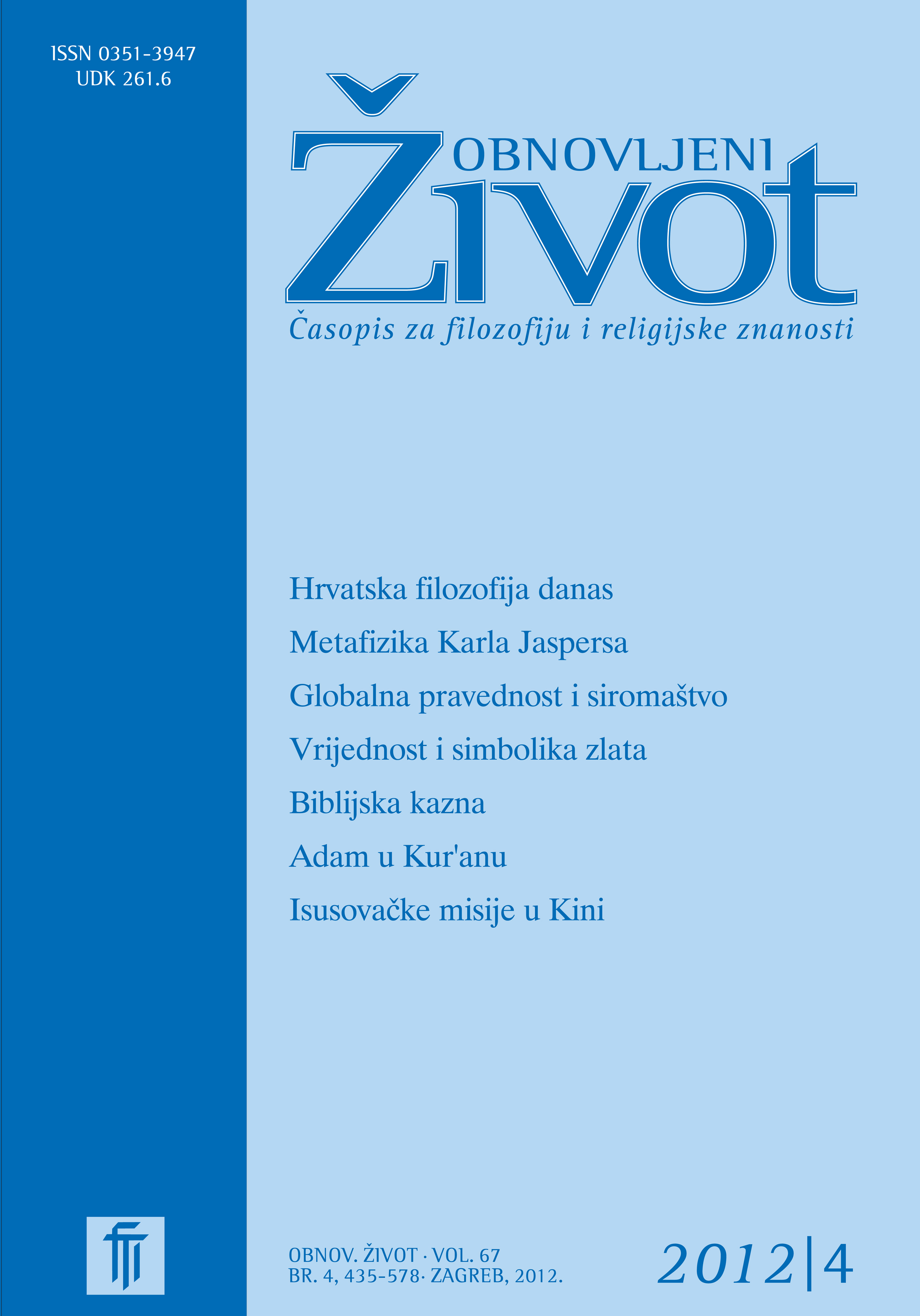Adam (Ādēm) in the Qur’an
Keywords:
Adam (Ādēm), the Qur’an, creation, sin, progeny, prophetAbstract
In this paper we deal with Adam (Ādēm) who, according to the Qur’an and Islamic tradition, was the first–created man, the first Muslim, the first prophet, founder of the Kaba, the father of all humanity and as such occupies a special place in Islam. The article is divided into four parts, the first entitled »Creating the First Man«. In it we present the Qur’anic teaching on the creation of man and his unique position which elevates him above other creatures, including angels. The second section, titled »Sin and the Abandonment of the Garden of Eden«, presents the Qur’an’s account of Adam’s (Ādēm) (the first) sin and what it means for the future of his progeny and for all of mankind. In the Qur’an there is no doctrine of original sin or of the transmission of Adam’s (Ādēm ) sin to his sons and their future offspring. The third section of the paper, titled »Cain and Abel and the Rest of Humanity« deals with the descendants of Adam (Ādēm), the first murder (fratricide) and Adam’s (Ādēm) two sons in regard to the Old Testament based on the originality of the Qur’anic passage. Namely, in the Qur’an we find a conversation between two brothers in which one speaks directly to the other about his intent to kill him because God did not accept the former’s sacrifice. The latter does not flee, nor expostulate with him, but responds to violence with non–violence. The Qur’an clearly teaches that God does not tolerate violence of any kind among people. The fourth part, also the last, is called the »The Prophet Adam (Ādēm)«. Although the Qur’an does not explicitly mention that Adam (Ādēm) is a prophet, we may conclude from various Qur’anic texts that he is recognized and revered in Islam as a prophet and messenger. If we compare the Qur’anic accounts of Adam (Ādēm) with those of the Bible, we see that they disagree on some points while they overlap on others, as this study clearly shows.
Downloads
Published
Issue
Section
License
Jednom prihvaćeni članak obvezuje autora da ga ne smije objaviti drugdje bez dozvole uredništva, a i tada samo uz bilješku da je objavljen prvi put u Obnovljenom životu. Uredništvo će obavijestiti autora o prihvaćanju ili neprihvaćanju članka za objavljivanje.
Članci objavljeni u časopisu se, uz prikladno navođenje izvora, smiju besplatno koristiti u obrazovne i druge nekomercijalne svrhe.


